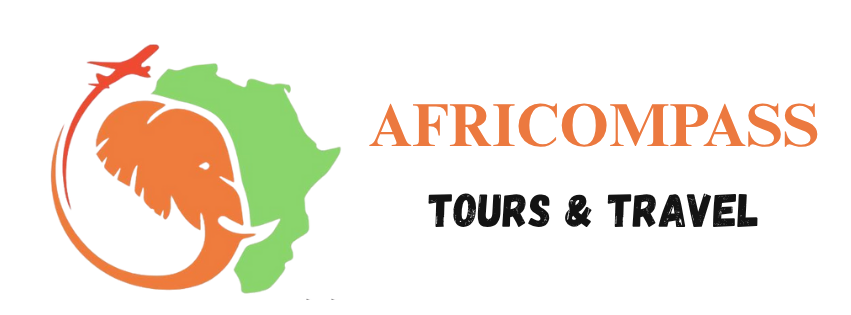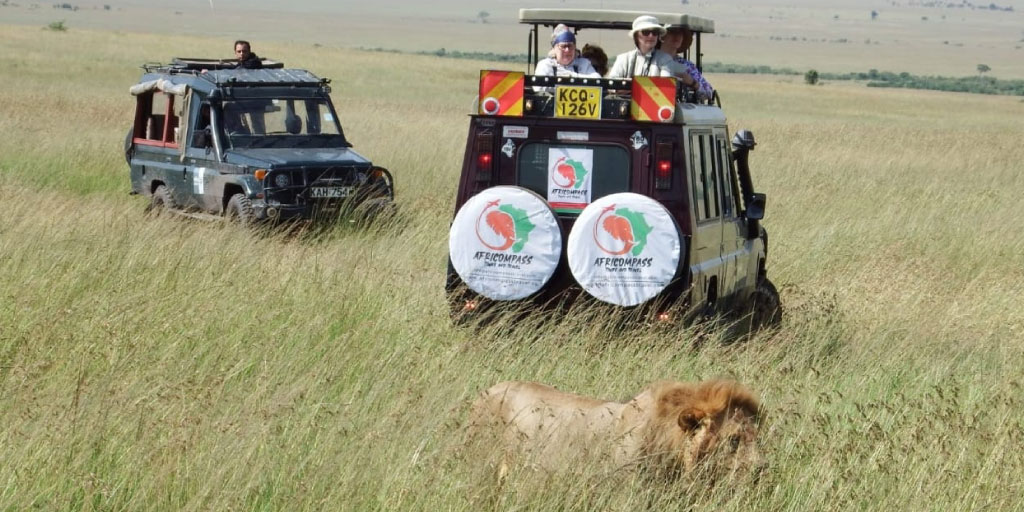So have you wondered how tours and travels work? The industries and services that organize, plan, and facilitate journeys, trips, vacations, and other travel-related activities for individuals or groups are referred to as tours and travels. This industry provides a broad range of services, such as planning traveler housing, activities, tours, and other travel-related logistics. Together, online travel firms, tour companies, travel agencies, and other service providers provide packages and choices that meet a range of traveler demands, preferences, and financial constraints. The goal is to improve the ease, convenience, and enjoyment of travel for people who are looking for leisure activities or are discovering new places.
Importance of Tours and Travels in Travel Industry
The tours and travels sector plays a crucial role in the broader travel industry for several reasons:
- Enhancing Travel Experiences: By managing the logistics, which can be too much for lone travelers to handle, such as lodging reservations, transportation scheduling, and activity planning, tour operators and travel agencies contribute to the smooth operation of travel experiences.
- Offering a Wide Range of Options: They offer a wide range of options to suit different traveler preferences, interests, and budgets, from affordable to luxurious vacation packages.
- Knowledge and Advice: Travel agencies and tour operators frequently possess in-depth knowledge of the places they offer, enabling them to provide travelers with guidance, advice, and insider tips to help them make the most of their travels.
- Streamlining Procedures: By offering pre-packaged itineraries or customizable options, they allow travelers to focus on enjoying their trips while saving time and effort during the travel planning process.
- Access to Special Offers: Tour operators can offer extra value to their clients by having access to exclusive offers, discounts, and bundled packages that individual travelers may not be able to obtain.
- Safety and Assistance: When traveling, these services provide travelers with support, emergency assistance, and peace of mind, particularly when they are visiting new places or dealing with unforeseen circumstances.
- Travels and tours play a major role in promoting tourism in various areas by bringing in tourists and supporting nearby establishments and attractions, which help to strengthen local economies.
- Adjusting to Trends: In order to satisfy shifting customer demands, the travel industry adjusts to changing trends by implementing technology, sustainable practices, and immersive offerings.
- Creating Memorable Experiences: Tours and travels that are carefully planned to provide travelers with exceptional experiences boost their general pleasure and satisfaction, encouraging return business and positive word-of-mouth recommendations.
- Encouraging Economic Growth: The travel and tourism industry creates jobs, promotes economic expansion, and helps a number of related industries like lodging, transportation, and entertainment.
Types of Tours and Travels

Group Tours
On a group tour, you travel with a predetermined itinerary and a group of individuals who are frequently escorted by a tour operator or guide. Smaller and bigger groups are welcome, and most have a set itinerary of sightseeing and activities.
Benefits of Traveling in a Group
- Cost-Efficiency: Because group tours make large reservations for lodging, transportation, and attractions, they frequently receive discounts.
- Social Interaction: A chance to make friends, exchange stories, and meet new people
- Convenience: The tour operator handles all of the planning, scheduling, and logistics.
- Safety: Especially when visiting new locations, traveling in a group can provide a feeling of security.
Examples of Group Tour Itineraries
- African city tours
- Safari adventures in Africa
- Cultural tours in Africa
- Cruise trips in various regions
Considerations when Choosing a Group Tour
- Group Size: Preference for bigger or more intimate gatherings
- Make sure the itinerary fits your interests and desired speed.
- Verify the items included, such as the activities, meals, lodging, and so on.
- Flexibility: While some excursions provide more free time, others may be more regimented.
Independent Travel
Independent travel involves planning and executing a trip without a tour group or guide. Travelers have the flexibility to create their own itinerary, pace, and activities.
Advantages of Independent Travel
- Flexibility: complete autonomy for activities, destinations, and duration of stay.
- Immersion Experience: A chance to engage in closer conversation with locals and their culture.
- Customization: Assemble the itinerary based on each person’s interests and preferences.
- The capacity to alter plans at the last minute is known as spontaneity.
Tips for Planning an Independent Trip
- Research: Compile details regarding locations, lodging options, and events.
- Budgeting: Set aside money for travel, lodging, food, and entertainment.
- Make Reservations in Advance: Reserve lodging and transportation well in advance, particularly during popular seasons.
- Discover the fundamentals of the language as well as the customs and traditions of the area.
Recommended Destinations for Independent Travelers
How Tours and Travels Work
Tour operators and travel agencies
- Tour Operators: Design and execute tour packages, handling logistics, accommodations, transport, and activities.
- Travel Agencies: Serve as intermediaries between travelers and tour operators, offering a variety of travel-related services.
Roles and Responsibilities
- Tour Operators: Plan itineraries, secure accommodations, arrange transportation, hire guides, and manage logistics during the trip.
- Travel Agencies: Provide information, bookings, and guidance to travelers, offering a range of travel-related services.
Services provided by Tour Operators and Travel Agencies
- Booking Accommodations: Hotels, Resorts, Guesthouses, etc.
- Transportation Arrangements: Flights, trains, buses, and car rentals
- Guided Tours: Local guides, excursions, and sightseeing
- Travel Insurance: Providing or facilitating travel insurance policies
- Customized Packages: Tailoring trips to specific preferences
- 24/7 Support: Assistance during the trip in case of emergencies.
Choosing a Reliable Tour Operator or Travel Agency
- Research: Check reviews, ratings, and testimonials from previous customers.
- Certifications: Look for accreditation or affiliations with recognized travel associations.
- Transparent Pricing: Ensure clarity on what’s included in the package and any additional costs.
- Customer Service: Evaluate responsiveness and helpfulness during inquiries.
Booking Process
- Research and Comparison: Explore various tour packages, considering destinations, itineraries, and inclusions.
- Making Reservations: Contact the chosen operator/agency to book the tour package.
- Payment: Follow their payment guidelines, which might involve deposits or full payments upfront.
Preparing for the Tour or Travel
- Packing Essentials: Depending on the destination and activities, pack clothing, toiletries, travel documents, medications, and other necessities.
- Obtaining Necessary Travel Documents: passports, visas, travel insurance, and any required vaccinations or health certificates
- Familiarizing with the Itinerary and Destination: Study the itinerary, understand the activities planned, and research the destination’s culture, language, and customs.
Benefits of Tours and Travels To Travelers
Tours and travels offer numerous benefits to travelers, enriching their experiences in various ways.
1. Cultural Immersion
- Exposure to Diversity: Traveling allows individuals to encounter new cultures, traditions, languages, and cuisines, broadening their perspectives.
- Interacting Locally: Engaging with locals and participating in cultural activities fosters a deeper understanding of different ways of life.
2. Personal Growth
- Self-Discovery: Exploring new environments challenges individuals, helping them learn more about themselves and their capabilities.
- Adaptability: Dealing with unfamiliar situations enhances adaptability and problem-solving skills.
3. Education and Learning
- Historical and Educational Insights: Visiting museums, historical sites, and landmarks provides firsthand knowledge and understanding of different historical periods and events.
- Natural Wonders: Exploring natural wonders educates travelers about ecosystems, geography, and environmental conservation.
4. Stress Relief and Relaxation
- Escape from Routine: Traveling offers a break from daily routines, reducing stress and providing relaxation.
- Rejuvenation: Being in new surroundings and experiencing different activities can revitalize the mind and body.
5. Building Relationships and Memories
- Social Connections: Traveling with friends, family, or in groups creates lasting memories and strengthens relationships.
- Shared Experiences: Creating shared memories through experiences strengthens bonds with travel companions.
6. Adventure and Exploration
- New Experiences: Trying new activities, exploring uncharted territories, and pushing personal boundaries create thrilling experiences.
- Adventure: Activities like hiking, trekking, or diving offer adrenaline-pumping adventures.
7. Broadening Perspectives
- Open-mindedness: Exposure to different cultures and lifestyles encourages open-mindedness and tolerance.
- Global Awareness: Understanding global issues and challenges by witnessing them firsthand.
8. Health Benefits
- Physical Activity: Activities like hiking, walking tours, or water sports promote physical fitness.
- Mental Well-being: Exposure to new environments and cultural experiences can boost mental health and creativity.
9. Creating Lifelong Memories
- Souvenirs and Keepsakes: Collecting mementos from different places serves as a reminder of memorable experiences.
- Storytelling: Travel stories become anecdotes and narratives that are shared and cherished for years.
10. Unique Experiences
- Exclusive Opportunities: Access to exclusive events, festivals, or attractions during specific seasons or locations.
To Sum up the Discussion…
Tours and trips are essentially the smooth synchronization of services provided by travel agencies and tour operators, providing professional advice, specialized experiences, and convenience. This method guarantees a seamless and enjoyable journey for visitors, enabling them to explore, learn, and create unforgettable experiences. It starts with selecting a dependable operator and continues with planning and execution.
Traveling and taking tours have several advantages, including relaxation, enhancing one’s culture, personal development, and making enduring memories. These experiences help people understand the world and themselves better, which not only broadens viewpoints but also greatly enhances personal wellbeing.


